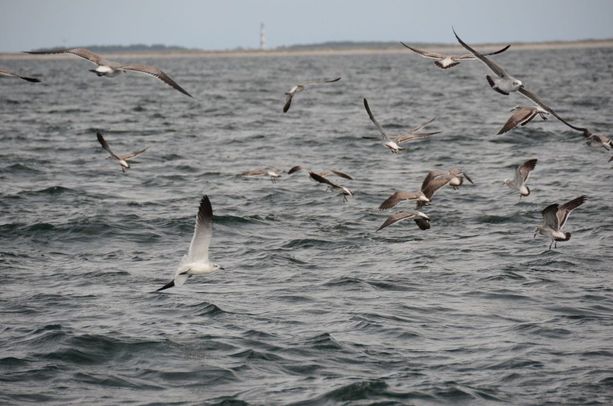|
This year, with clear evidence that the Trump Administration is jeopardizing many U.S. environmental conservation and protection programs and policies, with hugely damaging consequences, Gary E. Machlis, former National Park Service science advisor (and Clemson University professor of environmental sustainability), and Jonathan B. Jarvis, retired NPS career professional and national director from 2009 to 2017, co-authored an important and inspirational book. The Future of Conservation in America: a Chart for Rough Water (University of Chicago Press) asserts that we are in a period of “rough water,” affecting many environmental assets and conservation programs. The authors identify three major environmental and social threats (and the dangerous irresponsibility of denying them) confronting America: climate change, species extinction, and economic inequality. Actions are required to navigate through the very rough waters facing us. It is essential to assure that the conservation movement is understood by Americans (and especially by young people) as critically relevant to public health and interest. A general re-commitment to environmental conservation and protection is necessary. <<continued>> The authors say their “chart for the future of conservation” is based on strategic intention. Emphasizing that there should be no boundaries between conservation management of natural and of cultural resources (which are inextricably linked), they call for a new and unified vision of conservation.
Here are strategies presented by Machlis and Jarvis to guide the future of conservation in the U.S.:
2 Comments
John E Cotterman
3/28/2019 12:17:32 pm
Hey folks. What's happening around here?
Reply
Leave a Reply. |
When we see land as a community to which we belong, we may begin to use it with love and respect.... Conservation, viewed in its entirety, is the slow and laborious unfolding of a new relationship between people and land." There is in fact no distinction between the fate of the land and the fate of the people. When one is abused, the other suffers. From the PresidentSCP President Chuck Roe looked at land conservation along the route of John Muir's "Southern Trek." About ViewpointThis blog offers views of our Board and partners. We invite your viewpoint on the following questions: Archives
April 2024
Categories
All
|


 RSS Feed
RSS Feed